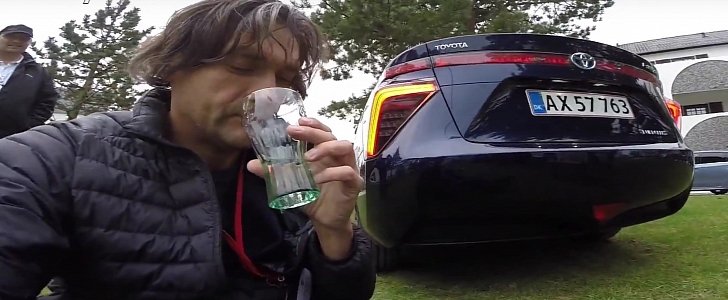Once you go green, you can never go back, and even if we lost the rhyme along with the word black, this seems to describe Toyota’s future way. If people haven’t taken the Japanese automaker seriously back in 2014, with the release of the Mirai hydrogen fuel cell vehicle, they should start now.
The numbers listed in the title are part of a bigger plan the Japanese automaker is after, called the Toyota Environmental Challenge 2050. According to their press release, the company has outlined its objectives today, and the primary target is the elimination of the carbon footprint of its fleet and factories.
Before we do check out the details, we’d like to remind you of Volkswagen’s recent announcement that triggers the same problem (sort of). Not only did the black sheep of the worldwide automotive family decide to bring some hybrids and new AdBlue diesels in the spotlight, but they even say the future Phaeton is going to be electric.
Sure, such a decision was more or less expected, considering the whole emission test cheat scandal everybody knows by the name Dieselgate. It may, at the same time, show us what the new rules of the game will be in the future.
A 90 percent cut in average carbon dioxide emissions from new vehicles by 2050, compared with 2010 levels - that is quite a big deal. But that’s how Toyota wants to reduce the traditional internal combustion engine to tiny parts of their business.
Nevertheless, it’s not like the numbers look that bad today either. Toyota is currently selling around 1.27 million annually, and that number will only get bigger with better and cheaper batteries appearing every year. Just think of Tesla’s Gigafactory and how big of a change it will bring once it starts the production line.
“Carbon dioxide emissions while driving will become close to zero,” Senior Managing Officer Kiyotaka Ise said. “There will be a shift in the energy used by vehicles.”
Before we do check out the details, we’d like to remind you of Volkswagen’s recent announcement that triggers the same problem (sort of). Not only did the black sheep of the worldwide automotive family decide to bring some hybrids and new AdBlue diesels in the spotlight, but they even say the future Phaeton is going to be electric.
Sure, such a decision was more or less expected, considering the whole emission test cheat scandal everybody knows by the name Dieselgate. It may, at the same time, show us what the new rules of the game will be in the future.
A 90 percent cut in average carbon dioxide emissions from new vehicles by 2050, compared with 2010 levels - that is quite a big deal. But that’s how Toyota wants to reduce the traditional internal combustion engine to tiny parts of their business.
Nevertheless, it’s not like the numbers look that bad today either. Toyota is currently selling around 1.27 million annually, and that number will only get bigger with better and cheaper batteries appearing every year. Just think of Tesla’s Gigafactory and how big of a change it will bring once it starts the production line.
“Carbon dioxide emissions while driving will become close to zero,” Senior Managing Officer Kiyotaka Ise said. “There will be a shift in the energy used by vehicles.”
